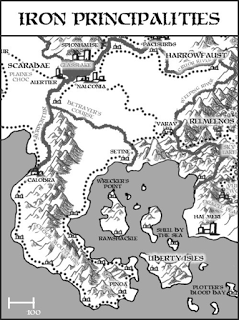NBC's television adaptation/re-envisioning of Dracula (2013) was crazy. Aside from the Romantic love-beyond-death subplot, the cod Victoriana, and the Tesla-esque, the show's main theme was Dracula vs. Capitalism.
The show unintentionally highlighted why capitalism has never been overthrown as the dominant political economy. Although Dracula disables the economic and political apparatus of the Order of the Dragon (aka oil barons) in England, it's clear that this was a local victory rather than the conclusion to a large-scale ideological war; the importation of help from the Italian branch of the Order of the Dragon intimates a truth about how capitalism weathers the revolutionary storm: it's a global regime, not a local one. Dracula may have crippled his enemies in London, but the global nature of capitalism makes it impervious to grassroots, localized revolt. A vacuum of power in one industrialized center of the economy doesn't create instability, it creates opportunities for other capitalists.





































